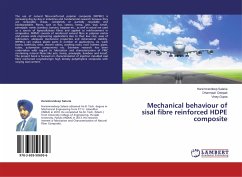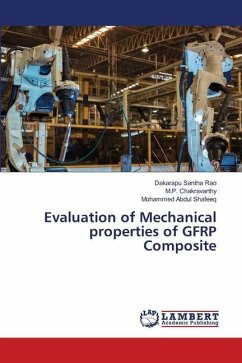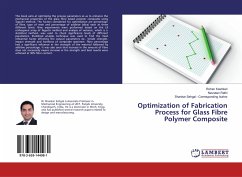Nowadays composites are an important class of materials which are available to mankind. So study of the composite plays vital role in engineering, material science, metallurgy and solid mechanics applications. The fibre reinforced composites are most widely used in the automotive industry, aeronautical industry and finds many other industrial applications due to their benefits like low cost, noise control, low weight and ease of processing. Glass fibre reinforced polymer composites are one of the most widely used composite materials. Glass Fiber composites are considered to have potential use as a reinforcing material in epoxy polymer-based composites because of their good strength, stiffness etc., in the present study, mechanical properties for glass fibre composites were evaluated. Here, hand layup techniques for preparation of Glass Composites has been described. Each of the composite samples with different volume fraction was tested (tensile and impact testing) and the results are reported. The result showed the effect of volume fraction on tensile strength and impact strength of glass fibre reinforced epoxy polymer composites and presented the conclusion.
Bitte wählen Sie Ihr Anliegen aus.
Rechnungen
Retourenschein anfordern
Bestellstatus
Storno








